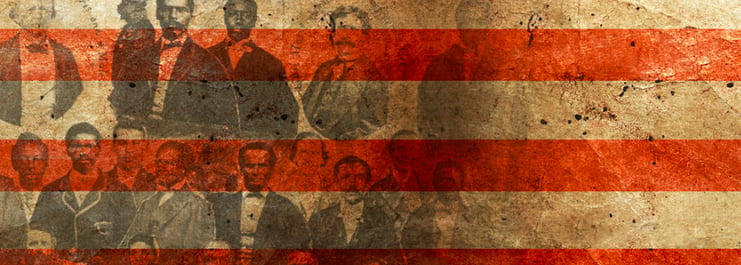
As a teacher, I talk to my students about expectations a lot. My expectations for them and their expectations for themselves. I tell them it is my professional responsibility and mission to raise their expectations. I want them to think deeper and more creatively. I want them to understand and not memorize. I want them to realize the human impact of history and their role in our collective tomorrow.
Hypothesizing about the future while examining the past has been a recurring theme in our American Government class this year. Through the lens of the Reconstruction Era, we focused on the current presidential election and the role of the electorate in choosing people who will make decisions that affect how we are governed.
Using Facing History’s Universe of Obligation, we examined the changes that occurred within the United States following the Civil War, including the adoption of new laws. As the nation progressed, the populations it was obligated to serve grew and diversified, posing new and complicated challenges. Facing History’s Reconstruction resources were the ideal tool to examine these challenges, engage in the human element, and allow my students to think deeper and more critically. I was able to break down the complexity of the bureaucracy so my students could focus on the human element.
My students put themselves in the shoes of U.S. leadership during the Reconstruction Era, drafting their own plans that would meet the often competing goals of healing and justice. They went beyond the simple memorization of facts, names, and dates and considered complex questions about what a nation needs to both heal and dispense justice. Then, we related it to the competing challenges facing the U.S. today.
Their plans were thoughtful but not earth-shattering; they didn’t create any magic formulas for success. But then again, neither did the politicians who oversaw Reconstruction or those who dismantled it. Instead, the assignment helped them understand how difficult, but necessary, it is for a nation to change its Universe of Obligation.
This knowledge is critical not only for understanding our past, but for interpreting our present and preparing for our future. It’s humans - just like my students - who can be the architects of expanding our nation’s Universe of Obligation. Everyday, in small ways, they get the choice to exercise their citizenship, participate in our democracy, and shape our collective tomorrow. They shouldn’t expect anything less from themselves.
Do you want to know more about our resource, The Reconstruction Era and the Fragility of Democracy? Sign up for our online course, "Teaching Reconstruction," which starts on June 8. You'll learn all about the resource and how it provides a close examination of the social and moral dilemmas Americans faced after the Civil War and the construction of American identity.


